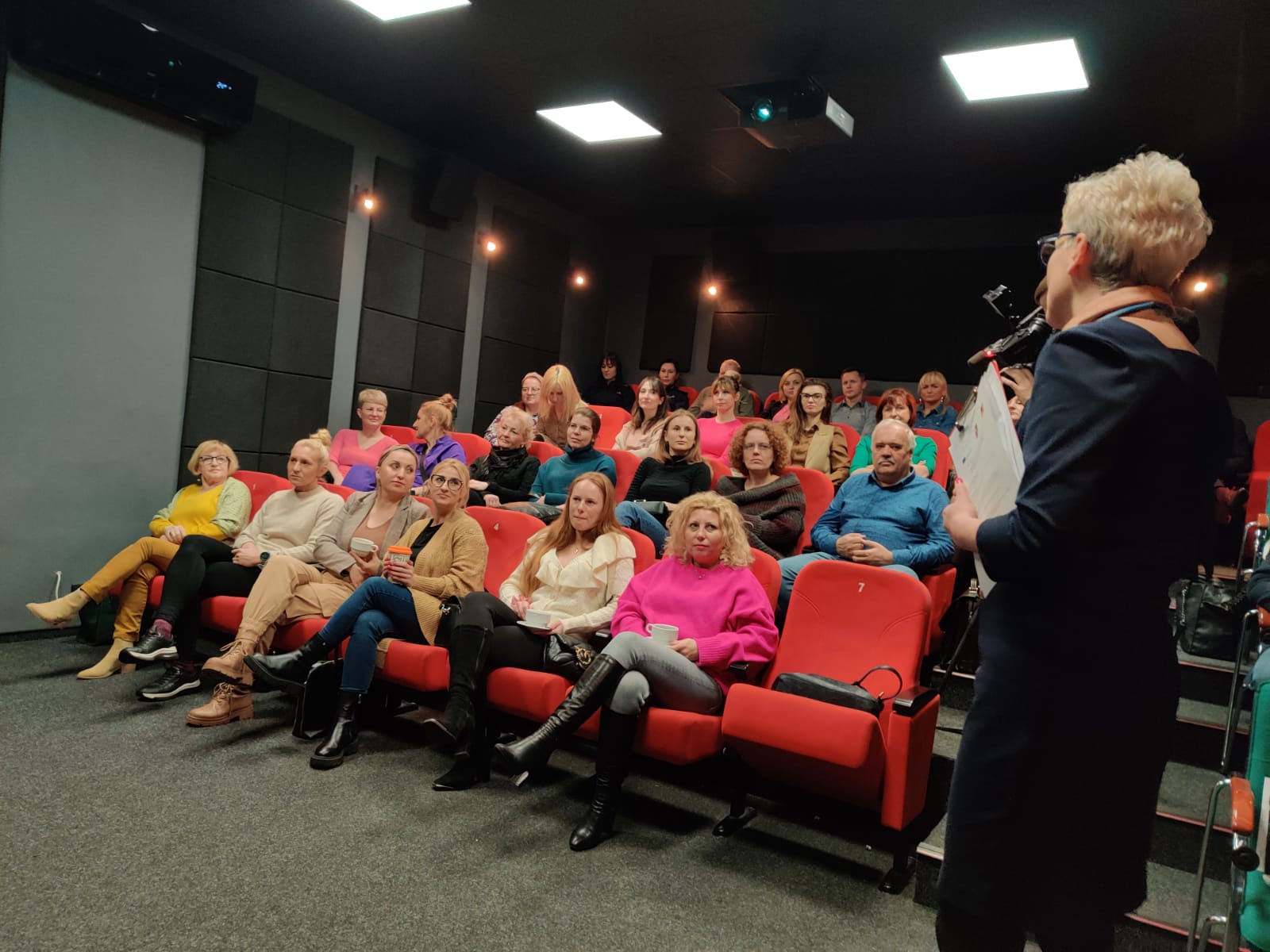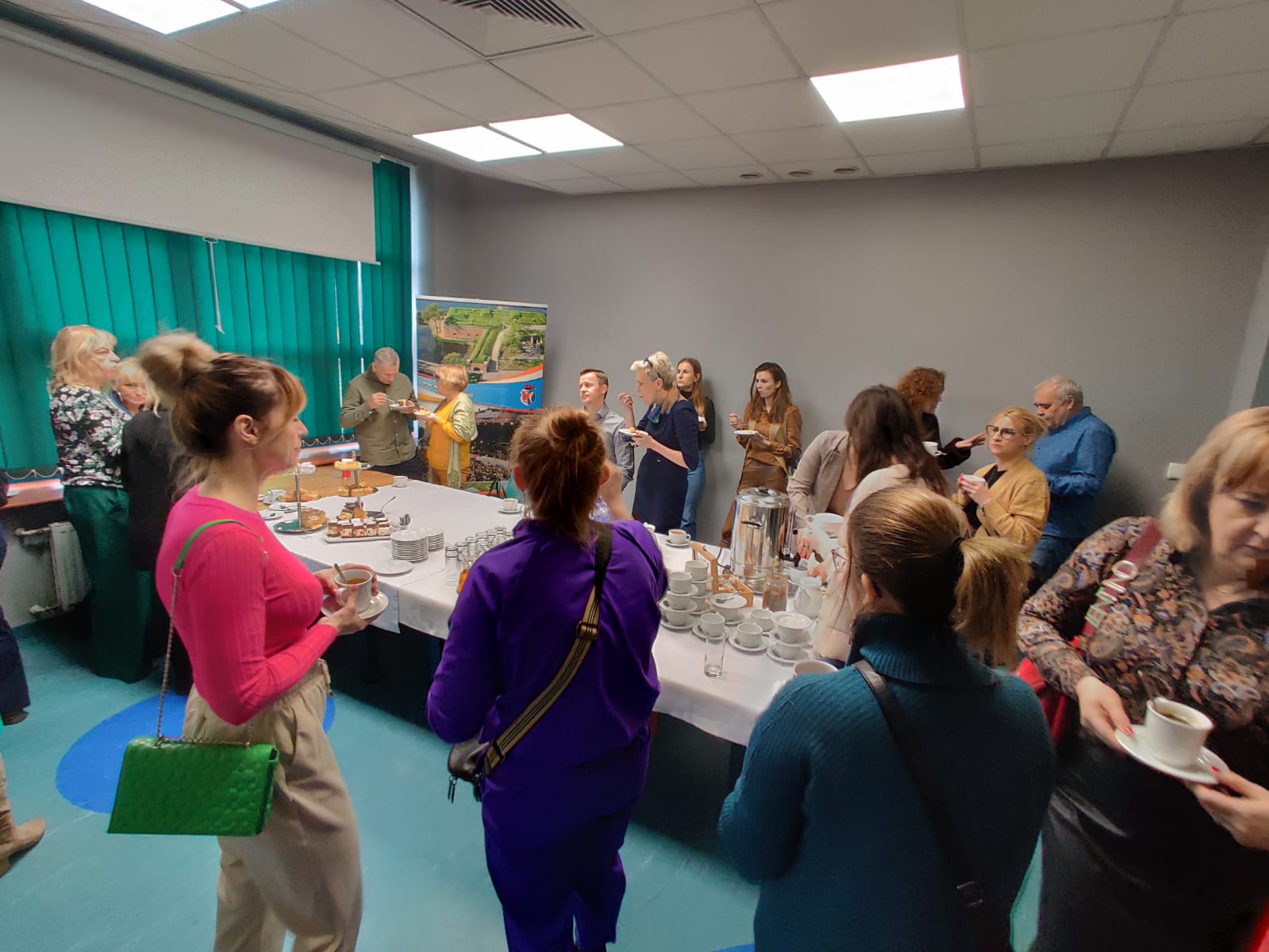
Friday 10th March 2023
From 10 am to 1 pm
KCK „Kręgielnia”
É5 Fabryczna Street, 66-470 Kostrzyn nad Odrą
Final Conference of the RadArt Project in Poland
Radicalisation leading to violence and extremism. How to recognise the phenomenon and counteract effectively
Summary conference of the RadArt project subsidised by the Erasmus+ Programme
Aims of the conference:
– to familiarise participants with the phenomena and dangers of social radicalisation
– to acquire the ability to recognise the process of radicalisation
– to indicate the directions of prevention of counteraction
Target group:
Teachers, educators, psychologists, youth workers, members of non-governmental organisations, employees of cultural and sports institutions, employees of Social Welfare Centres, Police, all persons interested in the problem of radicalisation
Speakers:
Agnieszka Żurawska-Tatała (Town Hall of Kostrzyn nad Odrą)
Katarzyna Olejnik (Kostrzyn Cultural Centre)
Commissioner Artur Chorąży (Provincial Police Headquarters in Gorzów Wlkp)
Stanisław Czerczak (expert on counteracting radicalisation in the youth environment, CODEX Foundationexpert)
Programme
10 am: Introduction
Presentation of the Project
Agnieszka Żurawska-Tatała (Town Hall of Kostrzyn nad Odrą)
Katarzyna Olejnik (Kostrzyn Cultural Centre)
- What is Erasmus+ and what activities does it fund? Where to look for project partners?
- RADArt project issues and activities?
- Results of the RADArt project
11 am: Coffee Break
About radicalisation
Stanisław Czerczak – CODEX Foundation – expert on counteracting radicalisation in the youth environment
- causes of radicalisation – why people become radicalised
- presentation of the film „Anna’s World” – discussion
- activism – radicalisation – extremism – terrorism – introduction to the terms
- how to identify radicalisation
- presentation and identification of extremist symbols
- 6 Propaganda – promoting radical ideas in society
- What it looks like in practice
- Terrorism abroad and in Poland
- disinformation and fake news in the context of the war in Ukraine and war refugees in Poland
- how to address and counteract
- discussion
Legal consequences of violence and extremism
Commissioner Artur Chorąży (Provincial Police Headquarters in Gorzów Wlkp)
1 pm: Lunch
Report of the conference
Summary
On 10th March 2023, a conference summarising the project subsidised by the Erasmus+ programme RADArt – Art against youth radicalisation: Radicalisation leading to violence and extremism. How to recognise the phenomenon and counteract it effectively.
The meeting was attended by teachers, employees of the Social Welfare Centre, educators, cultural and sports institutions, Social Welfare Centres, police officers and people interested in the problem of radicalisation.
During the conference, the results of the project, which lasted over two years, were presented, including the rules for applying for funding from the Erasmus+ programme.
Topics
Erasmus+ Programme
The aim of the Erasmus+ programme is to support, within the framework of lifelong learning and training, the educational, professional and personal development of individuals in the context of education, training, youth and sport in Europe and beyond,” emphasised Agnieszka Żurawska-Tatała from the Town Hall in Kostrzyn nad Odrą. Beneficiaries of the programme can be both schools and non-governmental organisations or institutions.
RadArt Project
The Erasmus+ programme finances the project RADArt – Art against the radicalisation of youth, in which, in addition to the city of Kostrzyn nad Odrą, organisations from the United Kingdom, France, Italy and Belgium also participated. During the project, a handbook for those working with young people was produced containing 11 proposals for workshop activities for working with young people. The proposed activities take a variety of forms: theatre, photography, ceramics and talk workshops, with the aim of discussing exclusion, radicalisation, intolerance and hate speech, and consequently counteracting these negative phenomena.
Creative methodologies
One of the activities proposed in the handbook is a photography workshop by Jusyna Streichsbier, who worked at the Kostrzyn Cultural Centre. It is based on the use of Krzysztof Kieslowski’s film 'Talking Heads’ during a workshop with young people. The workshop is planned over several meetings. All meetings are aimed at showing one’s perspective, the way of looking at the world and oneself through photography. We do not need specialised equipment for this. All you need is a mobile phone with a camera,” emphasised Katarzyna Olejnik from the Kostrzyn Cultural Centre.
Radicalisation in Poland
In the second part, a representative of the Codex Foundation discussed the causes of radicalisation – why people radicalise, what radicalisation looks like in practice. Extremist symbols, causes of disinformation and fake news in the context of the war in Ukraine and war refugees in Poland were also presented.
Radicalisation in Poland is still most often associated with Islamic terrorism, and there is a widespread belief that there is actually nothing to deal with. Therefore, it is now necessary to have a proper understanding of what the threat of radicalisation actually means,” Stanislaw Czerczak emphasised in his speech. It is necessary to have a proper understanding of what the threat of radicalisation actually means. Extremism can occur for a variety of reasons – religious, political, cultural, purely ideological – and is equally common in all social classes.
Radicalisation in itself is not yet a bad thing, because in democratic countries it is not forbidden to hold, or even express, radical views, as long as they do not incite or promote the commission of crimes. The danger arises when radicalisation leads to extreme, violent extremism, that is, when an individual violates the law, uses hate speech, violence or resorts to acts of terror,” Stanislaw Czerczak concluded.
At the end of the meeting, Superintendent Artur Chorąży of the Gorzów Wlkp. Provincial Police Headquarters pointed out that Poland already has legal tools to penalise radical incitement to commit crimes. In his speech, he particularly addressed teachers to make young people aware that actions on the Internet are apparently anonymous and that the use of hate speech is punishable.
Link to Polish media
Read the article on Gorzòv VLKP











